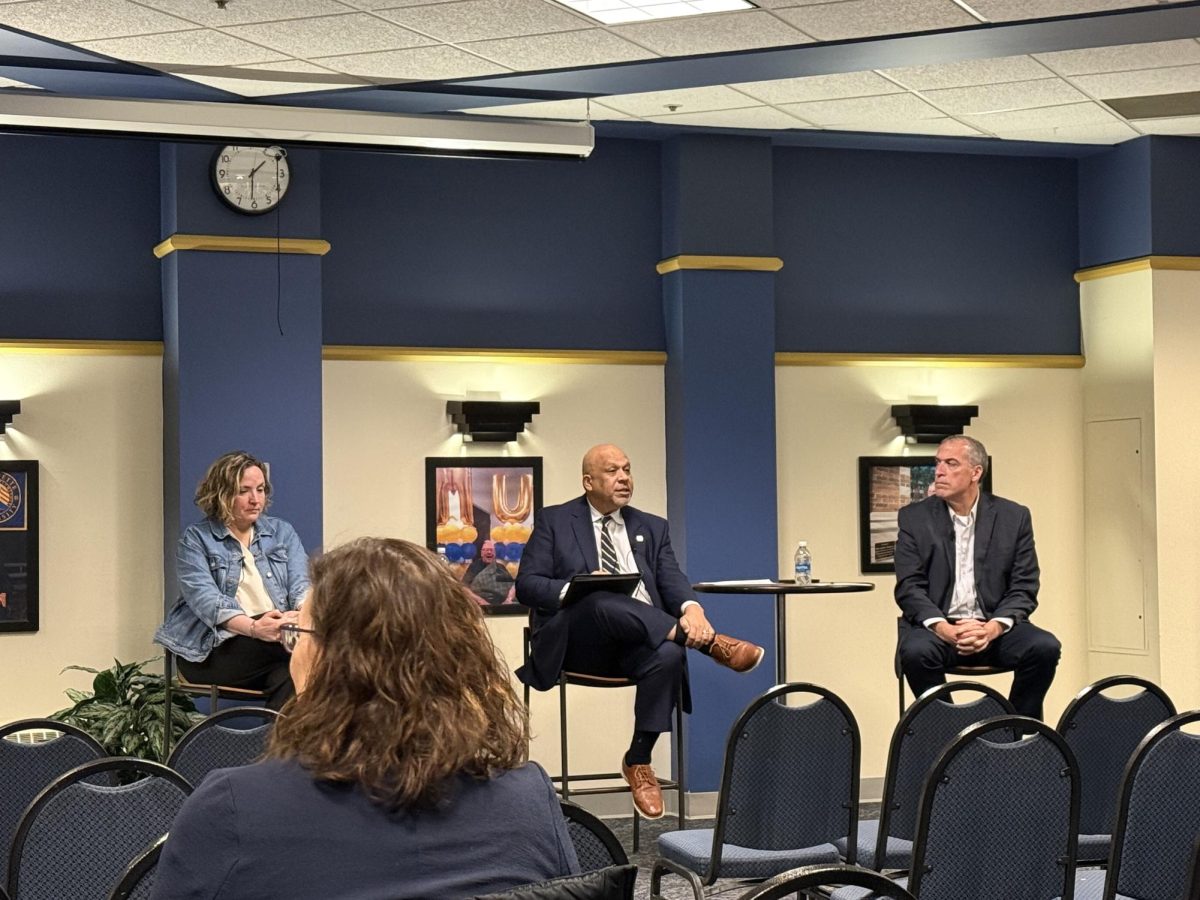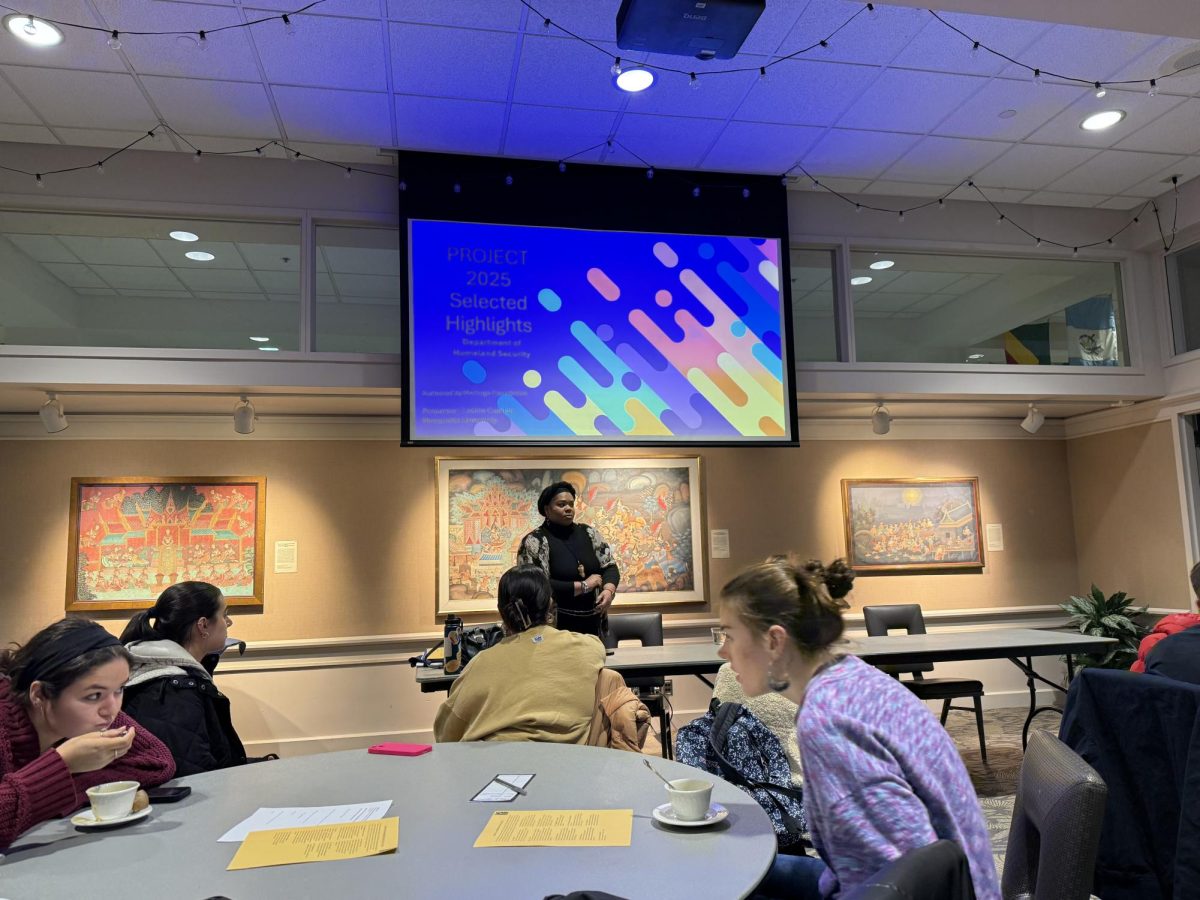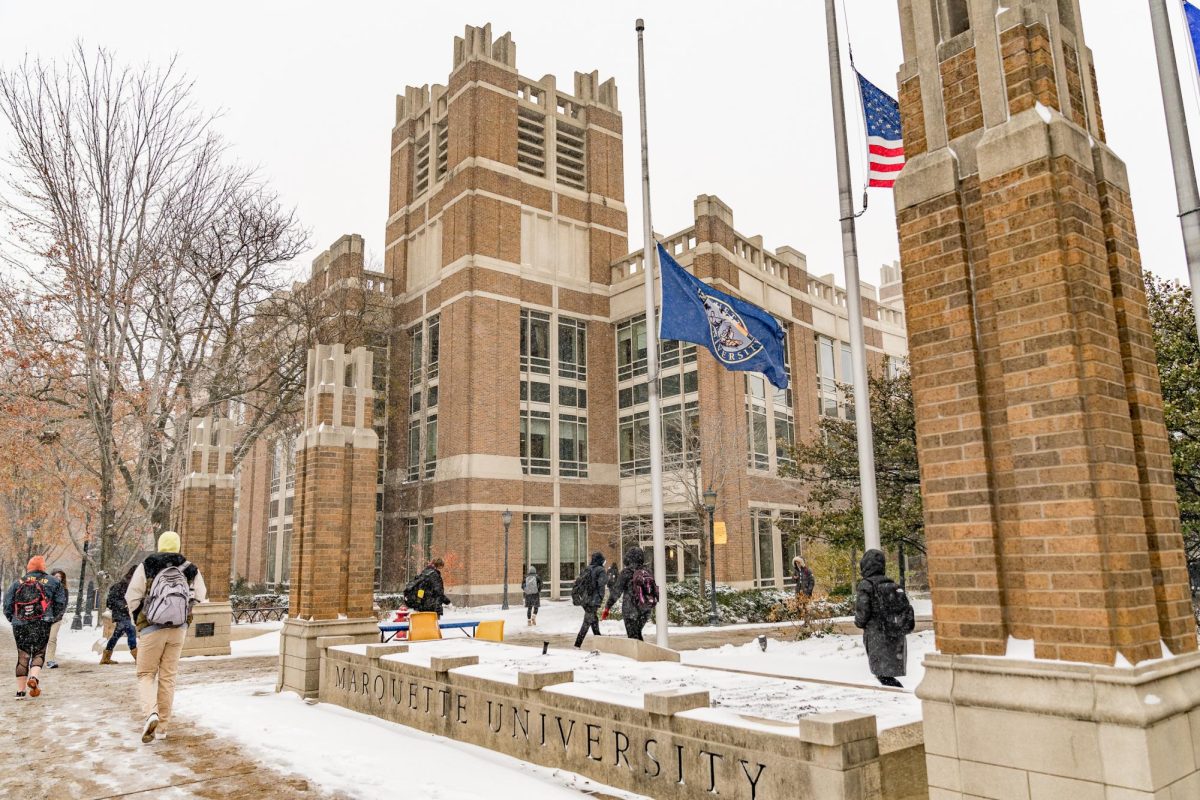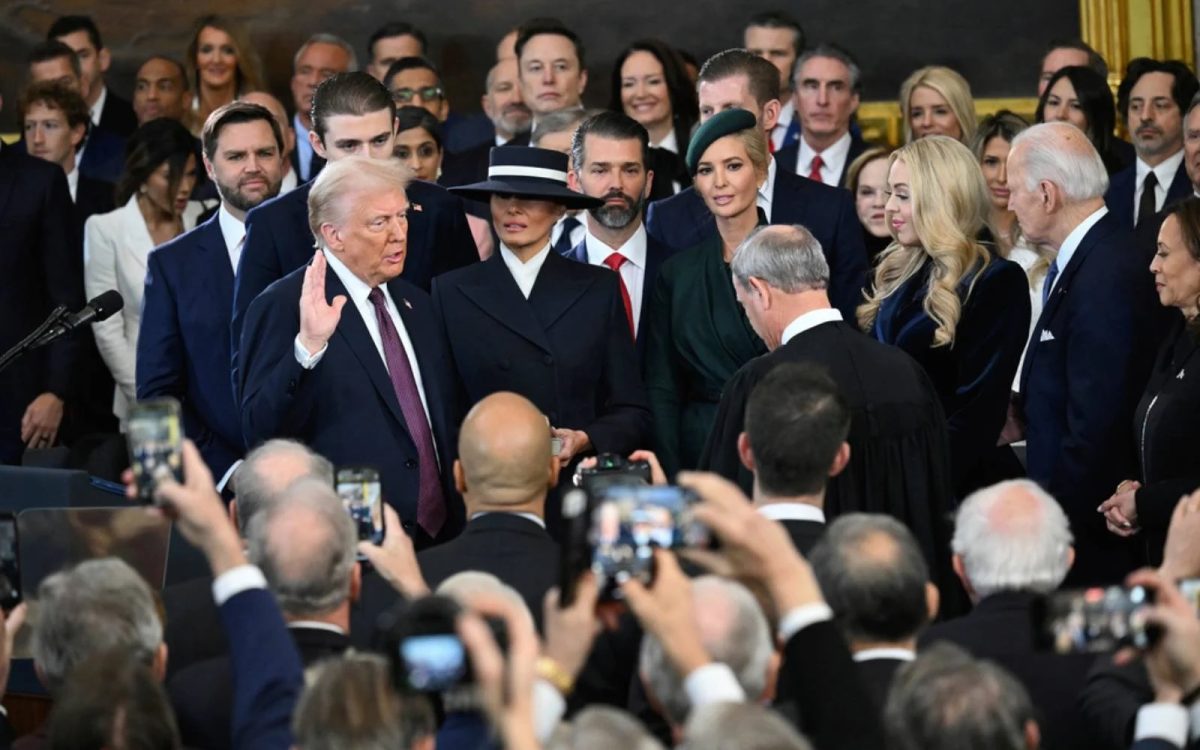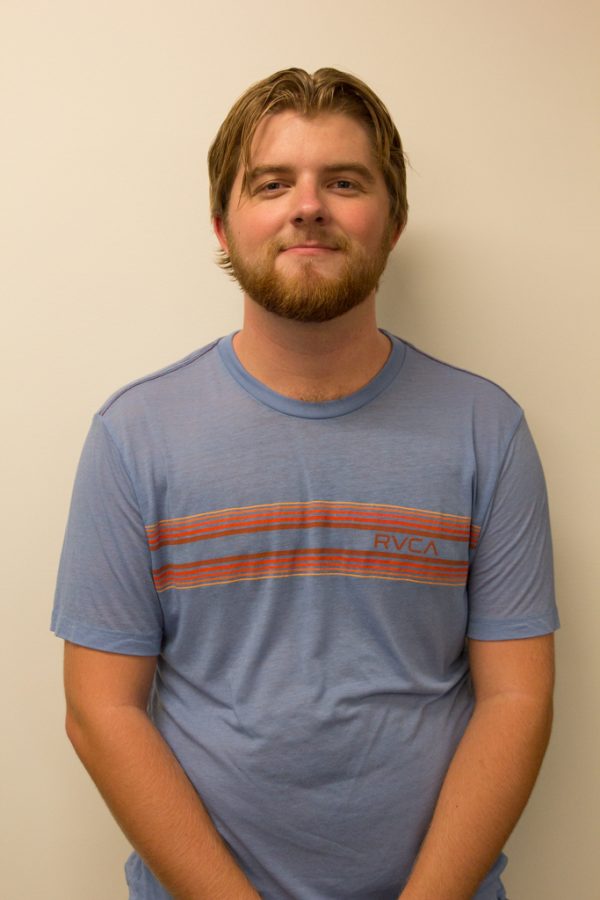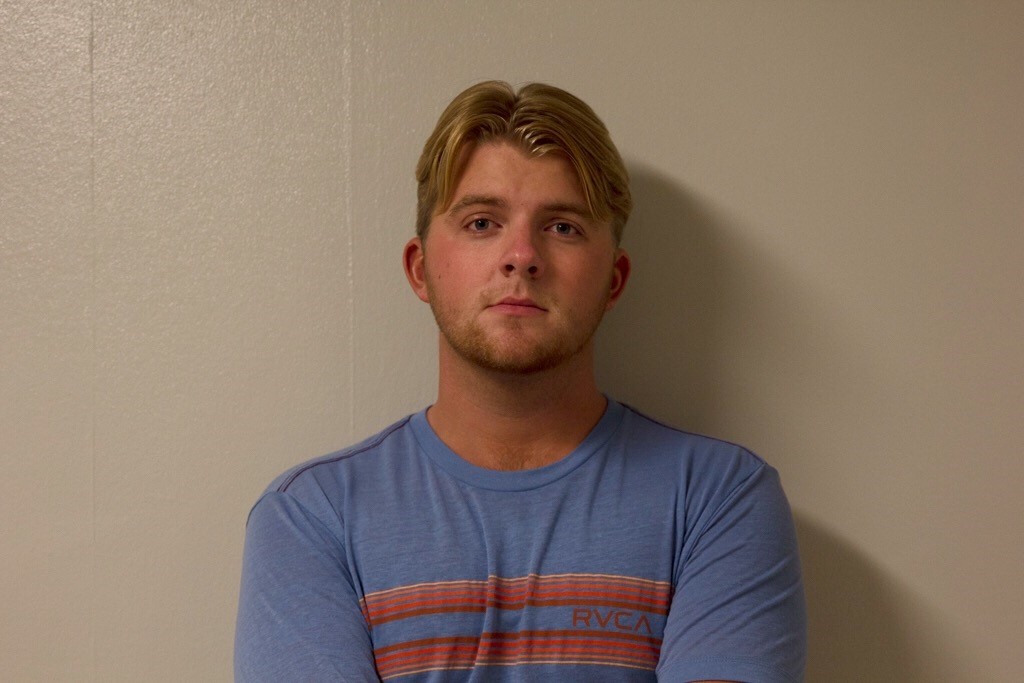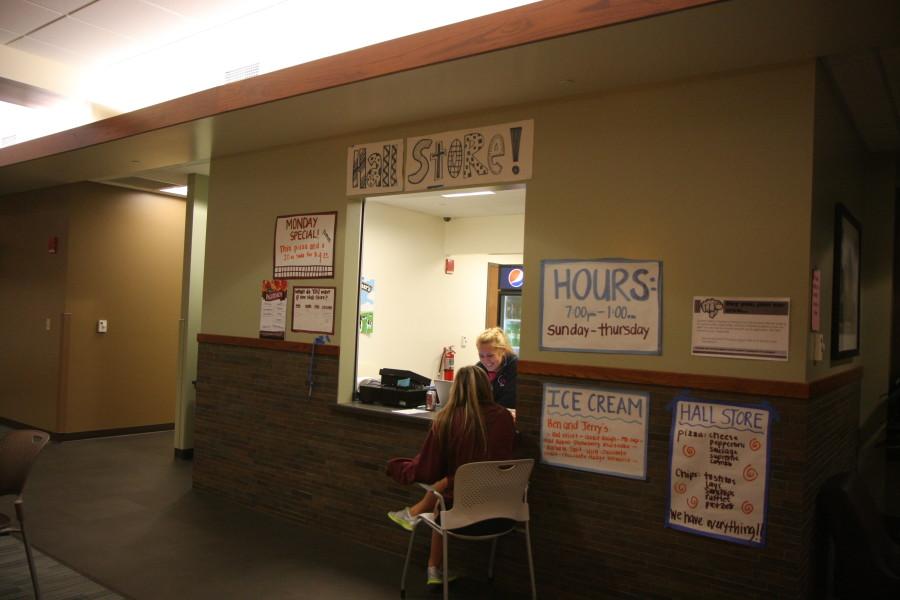
Faced with calls for an end to its involvement with Marquette, representatives from Palermo Villa, Inc. took part in a forum with administrators and students Wednesday evening. Palermo’s, whose pizzas are sold in university hall stores and during Marquette basketball games, has been accused of violating labor rights after allegedly firing immigrant workers who attempted to unionize.
Youth Empowered in the Struggle, a student organization, has repeatedly called for Marquette to reevaluate its relationship with Palermo’s. The group has called for students to boycott the company’s products and, in March, protested in front of the Bradley Center during a men’s basketball game.
Max Bertellotti, a freshman in the College of Arts & Sciences, said that, as a student, he hopes Marquette sticks to its mission and values when considering its relationships.
“I hope Marquette stands up for its ideals as a Jesuit university, working for the ‘magis’ and advocating for the rights of the Milwaukee community and the opinions of Marquette students,” Bertellotti said.
Palermo’s vice president of marketing, Chris Dresselhuys, and Tom Branigan, a part-time professor in the College of Communication, met with members of MUSG over the allegations facing Palermo’s and the company’s relationship with the university. It was then that the idea for a panel on the issue was conceived.
Art Scheuber, vice president for administration, and Dr. L. Christopher Miller, vice president for student affairs, attended the forum on behalf of Marquette administration. Roughly 80 students, mostly opposed to Palermo Villa, were also in attendance.
“We have yet to find evidence that would back up violations,” Scheuber said.
“If there is a question, then we are more than willing to answer,” Miller said. “There was no intent to avoid questions.”
Dresselhuys said the workers were not fired due to their attempt to form a union, but rather because they were not able to provide proper legal documentation proving they were legal U.S. citizens.
“The manipulation of events that has taken place by the people who are attacking Palermo’s would be confusing for everyone,” Dresselhuys said.
After U.S. Immigration and Customs Enforcement found that specific Palermo’s workers had invalid Social Security numbers, employees were told individually on May 29 that they had 10 days to provide the proper information.
Three employees submitted documentation and were soon after cleared by the government.
“The government determines whether you are eligible to be in the U.S. or work in the United States,” Dresselhuys said. “Then it is up to that person to prove they should be in the United States.”
Though Miller said it is “immoral” for a company to fire employees for attempting to form a union, he said the allegations against Palermo’s did not appear to be true. Dresselhuys said the employees who were fired attempted to form a union after they left the company.
“Through all of our investigation, we have come to the conclusion that they are in full compliance with the law,” Miller said. “From my perspective, these questions are real and they need to be addressed. When it was brought to our attention, we were very direct.”
Many students attending the meeting disagreed. And the Worker Rights Consortium, an organization that aims to hold companies accountable on labor issues, found infractions against the company after it ran its own investigation.
Scheuber questioned the validity of the WRC’s report.
“It was created to oversee overseas sweatshops, not U.S. sweatshops,” Scheuber said. “In the U.S., if you are an employee, there are multiple places you can go if you have problems.”
The National Labor Relations Board and the Occupational Safety and Health Administration have also published reports on the Palermo’s case, with both reports finding the company not guilty of most allegations, while violating some minor ones. In past statements, the Marquette administration has asserted that the NLRB is an integral institution for companies to follow.
Scheuber additionally said the university could not take action without any particular form of proof of wrongdoing.
“What I hope you people take away is that allegations are allegations,” Scheuber said. “We don’t look at allegations; we look at the end result.”
Marisa Galvez, a senior in the College of Arts & Sciences and one of those who called for the panel, said the administration still needs to take more notice to the issues students have with Palermo’s as a company.
“I am still concerned with the Marquette administration’s ability to address student concerns in general,” Galvez said.
Both Miller and Scheuber said they would be willing to meet with the strikers.


